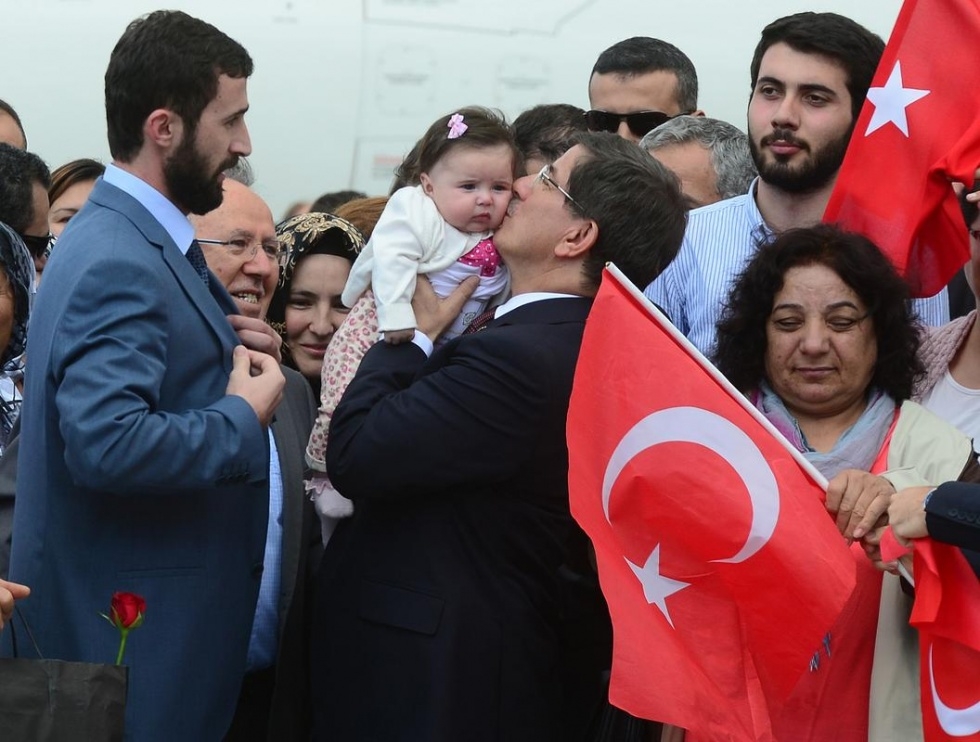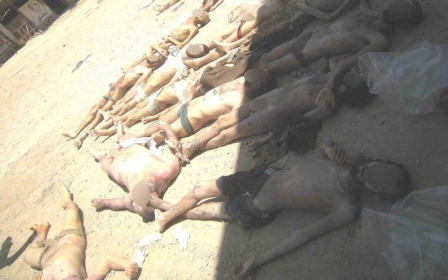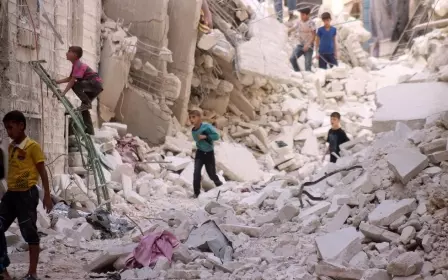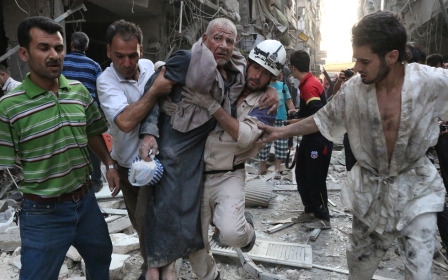Turkey: oppressing Sunnis in Iraq and Syria lead to chaos

Turkey warned the international community that the former Iraq government's exclusion of Sunni's would lead to problems in the region, said Turkey's Prime Minister Ahmet Davutoglu Monday evening in an interview broadcast by private channels, NTV and Star.
Davutoglu stressed that neither Syrian president Bashar al-Assad , nor former Iraqi Prime Minister Nuri Al Maliki "listened to us while we pleaded for nine months" and that the "current chaotic situation" could have been avoided had the international community also listened to Turkey's warnings.
Sunni politicians were sidelined one by one Davutoglu said, "[former Iraqi Vice President] Tariq Hashimi, Rafi Isavi, Nujaifi... there was no Sunni politician left, Where does a non-political formation go? It tends to this kind of actions to protect itself."
In several diplomatic attempts Turkey pleaded with Maliki to include Sunnis and all other groups in his government, however, consistent dissociation of Sunnis from the political process, resulted in a strong insurgency in the form of Islamic State (IS) militants.
"I am telling it to international community: Turkey does not have to prove anything. Turkey has always displayed a determined approach around the facts it believes in," said Davutoglu.
"If some people have to prove anything to move international community, the United Nations should prove it before these oppressed people (of Syria and Iraq), 350 thousand people have been killed, there are 4 million refugees, if anyone has to prove something, international community should prove its existence first."
Syria's civil war has resulted in the deaths of an estimated 191,400 people since it began three years ago, and displaced roughly half of the country population, according to the UN.
UN High Commissioner for Human Rights Navi Pillay said in a statement that the figures had doubled in the past year but "tragically it is probably an underestimate of the real total number of people killed."
According to the Syrian Network for Human Rights, more than 158,000 civilians have been killed in Syria.
It said that, in the operations carried out by Assad forces, 124,752 men, 17,139 children and 15,278 women had been killed.
A total of 831 men, 137 children and 81 women died in attacks carried out by IS militants in the country.
It added that 5,644 people had been exposed to torture under the Assad government, and 13 had been tortured by IS militants.
Syria's war began in March 2011 as a peaceful protest movement demanding Assad's ouster, but morphed into a brutal war after pro-Assad forces unleashed a massive crackdown against dissent.
Middle East Eye propose une couverture et une analyse indépendantes et incomparables du Moyen-Orient, de l’Afrique du Nord et d’autres régions du monde. Pour en savoir plus sur la reprise de ce contenu et les frais qui s’appliquent, veuillez remplir ce formulaire [en anglais]. Pour en savoir plus sur MEE, cliquez ici [en anglais].




